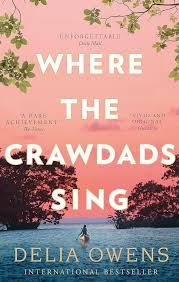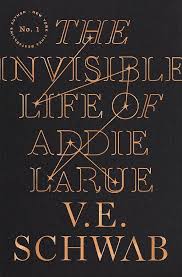404 Results with the "Literary" genre
Adventure Fiction (1164)
Biography (435)
Business & Finance (1)
Children's Literature (124)
Comics (6)
Culture (51)
Drama (123)
Dystopian (29)
Fable (86)
Fantasy (1132)
Fantasy (203)
Fiction (1010)
Finance (1)
Gothic Fiction (12)
Historical Fiction (615)
History (122)
Horror (56)
Lifestyle (36)
Literary Fiction (207)
Memoir (113)
Mystery (422)
Non-fiction (87)
Novel (549)
Paranormal Fiction (96)
Philosophical (182)
Philosophy (45)
Poetry (249)
Political Fiction (14)
Politics (42)
Practical (32)
Psychological (4)
Psychological Thriller (108)
Relationship (6)
Romance Novel (716)
Romantic Melodrama (14)
Satire (91)
Science (46)
Science Fiction (345)
Self-help (68)
Society (65)
Society (2)
Spiritual Growth (1)
story (2)
Thriller (704)
True Crime (56)
view (11)
Women's Fiction (2)
Young Adult (233)
-
Chapter
11. Croker Sacks Full
 Croker sacks full of grits were all that Kya had left in 1956, a bitter symbol of her struggle to survive alone after her abusive father, Pa, stopped returning to their decaying shack in the marshes. At just ten years old, Kya was now fully responsible for her own survival, facing the reality of complete isolation in the untamed wilderness. As days turned into weeks, and weeks into months, she braced herself for the reality that her father’s departure might mean the permanent absence of both parents,…
Croker sacks full of grits were all that Kya had left in 1956, a bitter symbol of her struggle to survive alone after her abusive father, Pa, stopped returning to their decaying shack in the marshes. At just ten years old, Kya was now fully responsible for her own survival, facing the reality of complete isolation in the untamed wilderness. As days turned into weeks, and weeks into months, she braced herself for the reality that her father’s departure might mean the permanent absence of both parents,…-
236.5 K • Ongoing
-
-
Chapter
9. Jumpin’
 Jumpin' into the hazy morning of 1953, Kya, a young girl, found herself surrounded by the complexities of isolation and a deep need for human connection. Her father, who had been mostly absent in recent times, took her on a trip to the marina, where they would meet Jumpin', an older Black man who operated a small Gas and Bait shop. The quaint shop was bursting with colorful advertisements, a vivid reminder of the area's history and culture, and it was within this setting that Kya first felt a touch of…
Jumpin' into the hazy morning of 1953, Kya, a young girl, found herself surrounded by the complexities of isolation and a deep need for human connection. Her father, who had been mostly absent in recent times, took her on a trip to the marina, where they would meet Jumpin', an older Black man who operated a small Gas and Bait shop. The quaint shop was bursting with colorful advertisements, a vivid reminder of the area's history and culture, and it was within this setting that Kya first felt a touch of…-
236.5 K • Ongoing
-
-
Chapter
7. The Fishing Season
 The Fishing Season takes place in 1952, offering a detailed exploration of Kya's life, her isolation, and her longing for connection. She is a young girl living in solitude, abandoned by her family, and left to survive in a dilapidated home in the marsh. The only moments of companionship she has come from brief encounters with her father, who is emotionally and physically abusive, and a small group of townspeople who view her with disdain due to her poverty and status as an outsider. Kya’s solitude is a…
The Fishing Season takes place in 1952, offering a detailed exploration of Kya's life, her isolation, and her longing for connection. She is a young girl living in solitude, abandoned by her family, and left to survive in a dilapidated home in the marsh. The only moments of companionship she has come from brief encounters with her father, who is emotionally and physically abusive, and a small group of townspeople who view her with disdain due to her poverty and status as an outsider. Kya’s solitude is a…-
236.5 K • Ongoing
-
-
Chapter
4. School
 School, 1952, was a pivotal year in Kya Clark’s life, as she faced the daunting reality of being thrust into a world far removed from the one she had known in the swamp. Her life, up until then, had been one of isolation and solitude, with only the occasional fleeting visit from her father and minimal social interaction with anyone other than the creatures and natural wonders around her. One day, her world was shaken when an unexpected car arrived, bringing with it the truant officer, Mrs. Culpepper, and…
School, 1952, was a pivotal year in Kya Clark’s life, as she faced the daunting reality of being thrust into a world far removed from the one she had known in the swamp. Her life, up until then, had been one of isolation and solitude, with only the occasional fleeting visit from her father and minimal social interaction with anyone other than the creatures and natural wonders around her. One day, her world was shaken when an unexpected car arrived, bringing with it the truant officer, Mrs. Culpepper, and…-
236.5 K • Ongoing
-
-
Chapter
2. Jodie
 Jodie, Kya’s older brother, had always been her closest companion during the early years following their mother’s departure. As the family began to fragment under the weight of their father’s abusive tendencies, Kya found solace in the bond she shared with him, even amidst the growing tension in their home. They would often share quiet, fleeting moments of normalcy—simple breakfasts and leisurely walks through the marshlands—creating a semblance of family, a fragile cocoon that briefly shielded…
Jodie, Kya’s older brother, had always been her closest companion during the early years following their mother’s departure. As the family began to fragment under the weight of their father’s abusive tendencies, Kya found solace in the bond she shared with him, even amidst the growing tension in their home. They would often share quiet, fleeting moments of normalcy—simple breakfasts and leisurely walks through the marshlands—creating a semblance of family, a fragile cocoon that briefly shielded…-
236.5 K • Ongoing
-
-
Chapter
1. Ma
 Ma's departure in the summer of 1952 was a turning point for six-year-old Kya Clark, a moment etched into the quiet, stifling heat of the North Carolina marshlands. The air, thick with humidity, seemed to press down upon the land, as if nature itself shared in the weight of Kya's loss. Her mother, dressed in her only pair of good shoes and carrying a blue train case, walked away from the shack without a word, leaving Kya to watch her vanish into the horizon. The sense of abandonment that Kya experienced in…
Ma's departure in the summer of 1952 was a turning point for six-year-old Kya Clark, a moment etched into the quiet, stifling heat of the North Carolina marshlands. The air, thick with humidity, seemed to press down upon the land, as if nature itself shared in the weight of Kya's loss. Her mother, dressed in her only pair of good shoes and carrying a blue train case, walked away from the shack without a word, leaving Kya to watch her vanish into the horizon. The sense of abandonment that Kya experienced in…-
236.5 K • Ongoing
-
-
Chapter
Chapter XX
 Chapter XX unfolds in the heart of a stormy New York City on September 4, 2014, where Henry stands at a crossroads, grappling with the overwhelming reality of letting go. The city around him mirrors his inner chaos, as the relentless downpour batters the streets, flooding them in a melancholic reflection of his emotional turmoil. His encounter with Addie, a woman whose resilience and indomitable spirit have remained unbroken by the trials of time and circumstance, is poignant in its depth. The clock that…
Chapter XX unfolds in the heart of a stormy New York City on September 4, 2014, where Henry stands at a crossroads, grappling with the overwhelming reality of letting go. The city around him mirrors his inner chaos, as the relentless downpour batters the streets, flooding them in a melancholic reflection of his emotional turmoil. His encounter with Addie, a woman whose resilience and indomitable spirit have remained unbroken by the trials of time and circumstance, is poignant in its depth. The clock that…-
451.9 K • Ongoing
-
-
Chapter
Chapter XIX
 Chapter XIX marks a critical and transformative moment in Addie’s life, set against the backdrop of New York City in September 2014. After years of being caught in a tumultuous web of emotions involving Luc, a being from the darkness, and the passionate love she shares with Henry, Addie finds herself standing on the threshold of monumental decisions. The city, alive with its incessant pulse and energy, mirrors the unrest brewing within Addie’s heart. As the night deepens and the city quiets around her,…
Chapter XIX marks a critical and transformative moment in Addie’s life, set against the backdrop of New York City in September 2014. After years of being caught in a tumultuous web of emotions involving Luc, a being from the darkness, and the passionate love she shares with Henry, Addie finds herself standing on the threshold of monumental decisions. The city, alive with its incessant pulse and energy, mirrors the unrest brewing within Addie’s heart. As the night deepens and the city quiets around her,…-
451.9 K • Ongoing
-
-
Chapter
Chapter XVIII
 Chapter XVIII begins with the protagonist standing on a rooftop that has long held significant meaning in his journey. It is here, amid the quiet cityscape, that pivotal moments of his life have unfolded—moments tied to the dramatic pact he made years ago. Now, poised at the edge of what feels like destiny, he stands beside Addie, both hand in hand, embodying a delicate mix of solidarity and apprehension. Together, they face the impending uncertainty, each moment charged with the weight of what is about…
Chapter XVIII begins with the protagonist standing on a rooftop that has long held significant meaning in his journey. It is here, amid the quiet cityscape, that pivotal moments of his life have unfolded—moments tied to the dramatic pact he made years ago. Now, poised at the edge of what feels like destiny, he stands beside Addie, both hand in hand, embodying a delicate mix of solidarity and apprehension. Together, they face the impending uncertainty, each moment charged with the weight of what is about…-
451.9 K • Ongoing
-
-
Chapter
Chapter XVII
 Chapter XVII unfolds on a serene, yet ordinary, day in New York City on September 4, 2014, where Henry and Addie remain in the soft, warm cocoon of their shared bed. Surrounded by the quiet rhythm of each other’s breathing, they linger in a peaceful intimacy, holding onto the fleeting moments with whispered names and quiet smiles. As the world outside transitions from morning to afternoon, they both resist the inevitable pull of time, content to stay wrapped in the comfort of their space, savoring the…
Chapter XVII unfolds on a serene, yet ordinary, day in New York City on September 4, 2014, where Henry and Addie remain in the soft, warm cocoon of their shared bed. Surrounded by the quiet rhythm of each other’s breathing, they linger in a peaceful intimacy, holding onto the fleeting moments with whispered names and quiet smiles. As the world outside transitions from morning to afternoon, they both resist the inevitable pull of time, content to stay wrapped in the comfort of their space, savoring the…-
451.9 K • Ongoing
-
- Previous 1 … 19 20 21 … 41 Next
